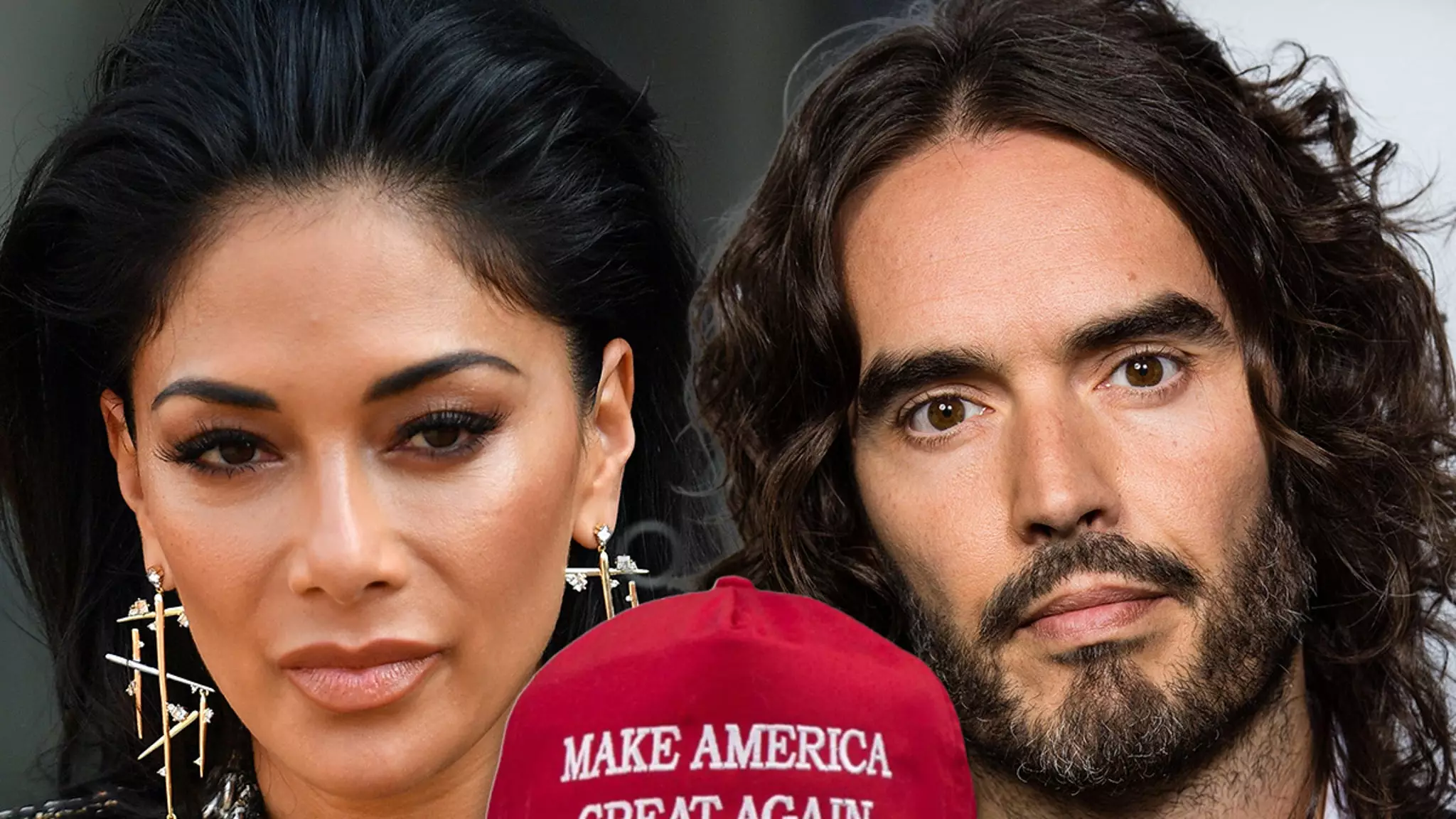Nicole Scherzinger, the renowned singer and former lead of the Pussycat Dolls, recently found herself embroiled in controversy following her praise for a MAGA hat donned by Russell Brand. The backlash has prompted her to issue an apology, harkening back to the delicate intersection of personal beliefs, social media, and public perception. Scherzinger’s intentions, aimed at expressing love and faith, were quickly misconstrued within the charged atmosphere of political discourse, echoing the challenges many celebrities face in today’s hyper-political climate.
In her heartfelt apology shared via Instagram Stories, Scherzinger expressed her regret to those hurt by her social media interactions. Her statement was both a clarification and an olive branch, conveying that she did not intend to endorse any political ideology. By highlighting the potential misinterpretation of her comments, she emphasized the importance of context in engaging with sensitive topics. “I apologize for anyone who understandably reached that conclusion,” she stated, signaling her awareness of the delicate nature of political affiliations and their association with personal character.
Scherzinger made a concerted effort to delineate her personal values from the presumptions drawn by the public. Her assertion that the inferences made about her character do not reflect her true beliefs suggests an ongoing struggle many public figures face: maintaining authenticity amid scrutiny. “I stand with the marginalized communities who feel hurt and concerned by the results of the presidential election,” she affirmed, revealing the complexities of her stance on social issues. This reaffirmation could be viewed as a crucial step in preserving her image while also fostering support for those in need, a balancing act that does not come easily in the limelight.
Scherzinger defended her reaction to Brand’s post by framing it within a religious context. She interpreted the phrase “Make Jesus First Again” as a call to embody values of compassion and unconditional love, focusing on the positive potential rather than the political ramifications. This distinction attempts to redirect the narrative from political controversy to a message grounded in faith and morality. However, the question remains: can individuals truly separate religious beliefs from the political ideologies that often intertwine with them in today’s society?
Despite her attempts to foster unity, Scherzinger’s message was complicated by her association with Russell Brand, a figure recently accused of serious misconduct. Her decision to follow him on social media is a point of contention that remains unaddressed in her apology, highlighting the challenges of personal affiliations in a public space. As a result, Scherzinger may find herself needing to navigate these waters more delicately in the future.
In a rapidly evolving socio-political landscape, celebrities like Scherzinger are increasingly under the microscope as they express their beliefs. The fine line between faith and politics blurs, reminding us all of the importance of thoughtful engagement in a world that often seeks to polarize its figures. Balancing personal values with public perception requires both introspection and prudence—qualities that will serve Scherzinger well as she navigates her public persona moving forward.

